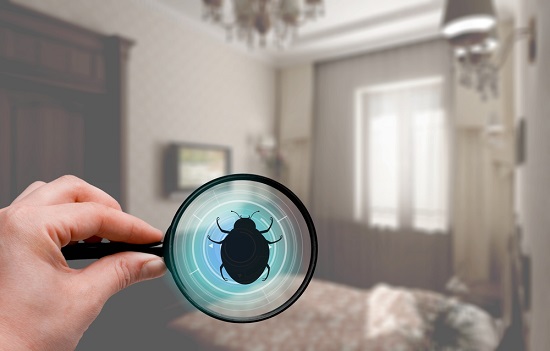
Summer is prime pest season, it’s clear. There are many insects: Flies, mosquitoes, and other wildlife can enter through windows and doors. You need to know some effective pest control tips to keep them at bay.
However, pests aren’t completely inactive during winter, as many people have learned. They are more likely to seek warmth and shelter indoors when it is snowy, cold, or wet outside.
Below are some brief descriptions of common winter pests and some pest control Myrtle Beach tips.
Where do winter bugs go?
Winged Carpenter Ants
Seeing flying ants are not a good indication. This is especially true if they are indoors in winter. Although a few winged ants may be found indoors in summer, it does not necessarily indicate a problem. However, if you see winged ants in your home during winter, it is likely that there’s an infestation of carpenter ants.
Cluster Fly
In the summer, homeowners expect to see a few flies in their home. What is an annoying problem in summer can become a nuisance in winter. Windows and doors are closed tightly, so it’s unlikely that any flies will venture inside.
Mice
The house mouse is a curious, wily creature that invades homes most often. It may be cute in a pet shop cage, but it is not as adorable when it makes your home its own.
Rats
The United States is home to two species of rodents: the Norway Rat and the Roof Rat. Both rats, along with the common house mouse were brought to America aboard ships bound for New World in 17th and 18th centuries.
Bed Bugs
The phrase “Sleep tight and don’t let bed bugs bite” has been a common expression for children for decades. In the past few years, however, bed bugs have returned, causing insomnia for hotel and homeowner alike.
Fruit Fly
The fruit fly is one the most common and smallest of all flies in the home. The fruit fly is often brought in unknowingly on fresh vegetables and fruits.
Moth Fly
Moth flies, a small insect commonly found around drains, are known as drain fly. Although it does not cause any real harm, it can be a pest to your home or property if it is present in large numbers.
Spiders
There are over 35,000 spider species worldwide. Only 3,500 of these appear in the United States, and 350 in each region. Spiders are generally beneficial, preying on and then feeding on the crickets and flies as well as other pests in the yard and home. They are almost all harmless to humans. They can be a nuisance if they enter your home.
Overwintering Insects
Overwintering is a term that’s often used to describe insects during winter. It can simply mean that an insect or other animal spends the winter there, but it is more commonly used to describe hibernation by insects to combat the cold.
Firewood pests
A fireplace or wood-burning stove can add warmth, comfort, and beautiful aesthetics to a home. The firewood brought in for the fire may also attract pests to your home.
Home invasion prevention
It is possible to prevent pests from entering your home, but there are ways to stop them getting in.
Rodent Control
Prevention through sanitation and exclusion is the best way to control rodents. They can get into a house or building by using spaces that are smaller than their bodies. It is crucial to be aware of signs and control methods for mice and rats.
Pestproof Your Home: A single cockroach in your house will make you want to grab a bug spray or call a pest control Myrtle Beach expert.
Get rid of ants:
You must first get rid of all the ants you don’t want to see in order to solve the problem. Ants are social insects that follow very rigid hierarchies.
Contacting a professional pest control specialist
Sometimes, it’s better to call a professional pest control specialist. This is especially true when you have a pest problem that is persistent, if it has grown large, or if products are not authorized for use by professionals.
Call Zap Pest Control Inc. if you need the help of a pest control specialist.
Zap Pest Control Inc.
2507 Forestbrook Rd Suite G
Myrtle Beach, SC 29588
843-654-1927
http://zappests.net/

No comments:
Post a Comment